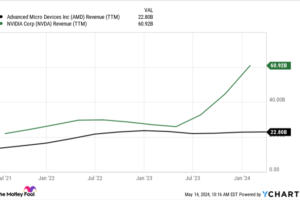If a major downturn hits the U.S. economy, homes in counties in New York City, Chicago, and Philadelphia are the most vulnerable to declines, according to a new report.
According to Attom Data Solutions, a real estate data company, housing markets near or in these big cities are at a heightened risk of being affected by a downturn in the housing market.
Counties were considered to be at risk based on a few factors, including whether there was a high percentage of homes facing foreclosure, a big share of underwater mortgages, as well as the county’s relative wages and unemployment rates.
Nearly 600 counties in the U.S. were ranked based on these categories. The data used was from the second quarter of 2022.
“The Federal Reserve has promised to be as aggressive as it needs to be in order to get inflation under control, even if its actions lead to a recession,” said Rick Sharga, executive vice president of market intelligence at ATTOM.
“Given how little progress has been made reducing inflation so far, the Fed’s actions seem more and more likely to drive the economy into a recession, and some housing markets are going to be more vulnerable than others if that happens.”
Attom found that nine counties in and around New York City were the most vulnerable. Kings and Richmond counties were the most vulnerable, i.e. Brooklyn and Staten Island.
In New Jersey and broader New York, counties that are at higher risk include Bergen, Essex, Ocean, Passaic, Sussex, and Union.
Six counties in Chicago were at the highest risk, and three in Philadelphia.
Part of the reason why these local markets are at higher risk is due to households in these areas shouldering a bigger financial burden, relative to their wages.
Mortgage payments, property taxes and insurance on median-priced single-family homes consumed a substantial portion of wages, Attom said.
For instance, in Brooklyn, nearly 103% of local average wages were needed to cover the costs associated with owning a home.
Some counties are showing signs of distress, Attom said.
Rockland County, N.Y. had the highest share of mortgages underwater, at 19.2%, in the first quarter of 2022.
Lake County, Ind., which is outside of Chicago, had 19.2% of mortgages underwater, followed by Peoria County, Il., with 17.6% of mortgages.
Home ownership can be a costly undertaking.
It’s not just the monthly mortgage payments, a homeowner also has to pay home insurance and property taxes, as well as unexpected costs that pop up, from repairs to furnishings.
Two-thirds of new homeowners said that they felt “house rich and cash poor” due to unexpected costs, according to a recent survey by U.S. News and World Report.
U.S. News polled 2,000 American homeowners who bought their first home last or this year.
More than half of the homeowners who were surveyed (56%) said they had to shoulder unexpected repairs costing between $500 to $1,000.

The skyline of downtown Nashville, Tenn.
Getty Images/iStockphoto
On the flip side, there are local markets where homes are not as vulnerable.
Counties in the South and the Midwest were least vulnerable to contracting housing markets.
Out of the top 50 counties least at risk of housing decline, six were in Tennessee, five in Wisconsin, and four in Arkansas.
Six of the top 50 counties with the lowest risk of a decline during a downturn include Davidson, Rutherford, and Williamson counties in Nashville, Tenn.
In Wisconsin, that meant Brown County (Green Bay), Dane County (Madison), Eau Claire County, La Crosse County, and Winnebago County (Oshkosh).
Home ownership was far less costly in these parts. In Sebastian County, Ark. for instance, only 16.5% of average local wages were required to cover major ownership costs.
“The ongoing wide disparities in risks throughout the country comes during a time when the U.S. housing market faces headwinds that threaten to slow down or end an 11-year surge in home prices,” Attom stated.
While falling home sales and higher rates have slowed the market, this report doesn’t suggest an imminent fall in prices, Attom said.
Still, with affordability worsening and foreclosures and delinquencies ticking up, they added, “local markets [are] heading into that uncertain future facing significant differences in risk measures.”
Got thoughts on the housing market? Write to MarketWatch reporter Aarthi Swaminathan at [email protected]















Add Comment